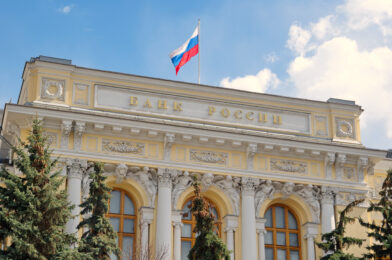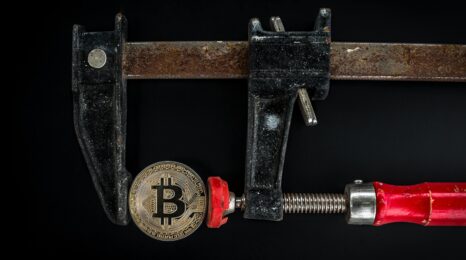The Economic Fallout of the ISIS Rampage
The ISIS Caliphate is a threat to the Economic Prosperity of the Middle East!
Iraq is increasingly fragmented, as evidenced by the merciless onslaught of ISIS forces. As this terror group continues to cut a swath across Syria and Iraq, the question being asked is what effects will this have on the greater Middle East? The general consensus is that this terrorist group poses a geopolitical threat to the region, and the world at large. Besides for political and security concerns, the economic impact of this group’s activities has yet to be determined. Banc De Binary experts stress that Iraq has 2 major characteristics that define its economy. These include oil production and a state dominated economy.
Regarding oil production, this is the foundation of the Iraqi economy. The country is currently the fifth largest oil-producing nation in the world, and its oil reserves are estimated at 143 billion barrels. In fact, with the exception of Iran and Saudi Arabia, Iraq is the largest oil producer in the Middle East. The country’s gross domestic product is largely comprised of oil (54%). The total GDP of the country was listed at $230 billion, of which 99% is generated through exports. The government also generates an astounding 93% of all its revenues from oil. Almost 40% of the labour force in Iraq is employed by the public sector, with far better benefits and greater security than the private sector. Unemployment in Iraq is currently around 15%.
Understanding the Iraqi Economy
Copy link to sectionThe oil industry in Iraq employs an estimated 8 million people and is highly capital intensive. As a result, market prices are the drivers of the Iraqi economy. When global demand increases and prices rise, the Iraqi economy – like other Middle Eastern countries – reaps the rewards of higher prices. But a caveat is in order: when prices drop, the Iraqi economy feels it too. Negative pressures on the price of oil are not necessarily demand and supply related; they can be the result of geopolitical tensions in the region which we have been seeing a lot of recently.
Since Iraq is a state run economy, the vast majority of oil exports and revenues are under total government control. As a result, the Iraqi government is largely responsible for influencing the bulk of economic activity. In terms of private sector activity, it is negligible in the broader scheme of things. The state dominates the manufacturing sector, the agricultural sector and the trading sector by way of state-owned enterprises. The government provide subsidies to these sectors, making private sector growth incapable of competing with the deep pockets of government. The regulatory framework is so convoluted, that owning and operating businesses and accessing credit is virtually impossible for most people. In terms of being able to do business in Iraq, the World Bank issued a report in 2014 which cited that Iraq was ranked 151st out of 189 countries listed.
Structural Foundation of Iraqi Economy Not Conducive to Free-Market Practices
Copy link to sectionIn spite of efforts by the US and coalition forces to restructure the Iraqi economy, very little has changed. The country is almost entirely dependent on oil and the state completely dominates most every aspect of the economy. The absence of economic reforms has been viewed as an abject failure by many Iraqis. It is against this backdrop that ISIS became such a powerful regional and potentially international player. Without the diversity required to stimulate a vibrant economy in Iraq, most everything centres around the country’s oil resources. Any major disruptions to oil production have the ability to adversely affect the country’s prosperity. There are analysts who feared that the growing uncertainty in the state of Iraq could mirror what transpired in Libya. During the height of the Libyan crisis, oil production dropped from 1.6 million barrels per day four years ago to less than 0.5 million barrels per day in 2011. This had a dramatic effect on economic fortunes of the country, with GDP being reduced from $75 billion to a paltry $35 billion.
Working in Iraq’s favour is the fact that the majority of the oilfields in the south of the country are still controlled by the government, while the Kurds control the oil resources in the North. However, ISIS presents a real and imminent threat to the country and the region. As it stands, the group has captured the country’s largest oil refinery in Baiji, and controls several small oilfields. However, the Kurds control Kirkuk with a capacity of over 1.6 million barrels per day. Economic analysts peg the country’s growth rate at between 2% and 3%, markedly down from the forecasted figure of 6% for the year. There is greater stability in the country than many international observers suspect, given that the majority of Iraq’s oil refineries are in the south where the majority Shi’ite population of the country resides. As the North suffers at the hands of ISIS terrorists and uncertainty, the government is channelling a large portion of its international reserves towards propping up the economy. It appears that the fragmented nature of the country may in fact prove to be its greatest asset. As long as the Kurds maintain control of the northern oilfields, and the Shi’ites control the South, there is room for other groups to work out some sort of political arrangement. In the event that the Kurds declare themselves an independent state, Iraq will be faced with a problem of unimaginable proportions.
Where Does ISIS Get its Money From?
Copy link to sectionDespite the fact that ISIS only controls a small portion of Iraq’s immense oil wealth, what it does control is sufficient to fund its continued expansion. It is estimated that their share of the oil market is worth $2 million per day. As they continue to expand their network further, more oil fields are coming into range. By extrapolating these figures over the course of the year, oil revenues could bring in up to $750 million. This represents an immense source of funding for them to tap into. Even if the terrorist organisation ix able to capture refineries such as the one in Baiji, they would need the technical expertise to operate it.
As it stands, ISIS will not be able to get its hands on the oil resources in the South, because that area is dominated by forces loyal to the government with a Shia majority. Since they are not a legitimate trading entity, all the oil that comes out of ISIS wells is traded on the black market. They sell everything below market price. Some of the countries accused of being party to this black market trade include Turkey, Syria, Jordan, Iran and others. This black market network precludes the construction of a legitimate pipeline distribution channel. The ultimate goal of the group is a Sunni Triangle, with territorial control and self-sufficiency. Their ultimate goal is to set up a caliphate according to strict sharia law. They are looking to entice Jihadists into their ranks, especially those with Western passports.
Likelihood of ISIS Dismantling Iraq
Copy link to sectionThe world has been focused on the geopolitical turmoil and the security issues related to the horrendous carnage meted out by ISIS. Unfortunately, the economic impact of this group’s reign of terror has not been sufficiently well documented. One compromise solution after another has fallen flat. There is the hope that the Shi’ite majority and the Sunni minority can come together to combat the scourge presented to the whole country by ISIS. An all-inclusive form of government will need to be implemented, and structural reforms will need to be made to the Iraqi economy. To date, none of this has happened, and intransigence at the highest level has been a big hurdle to the successful and peaceful resolution of this complex issue.
More industry news







